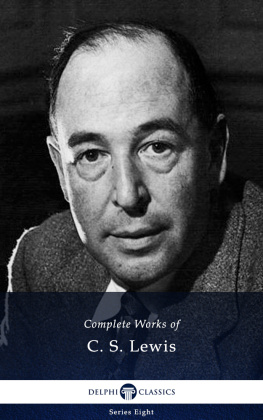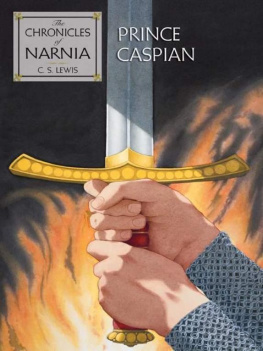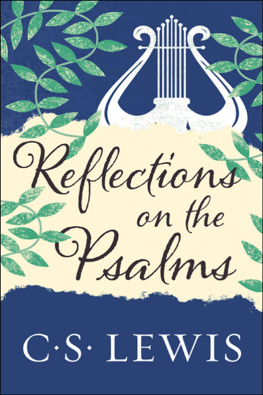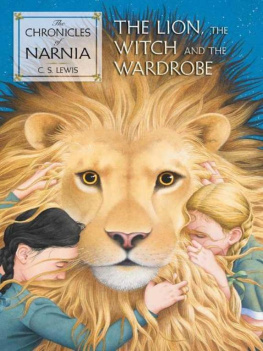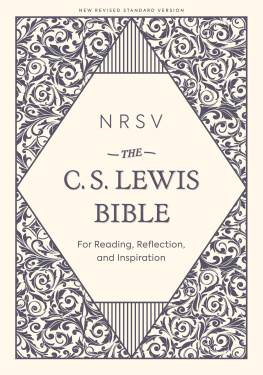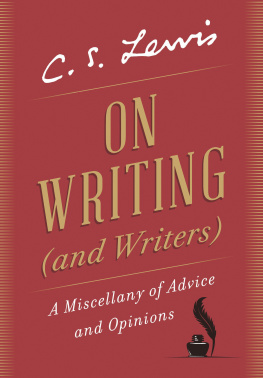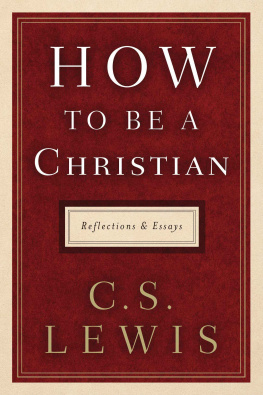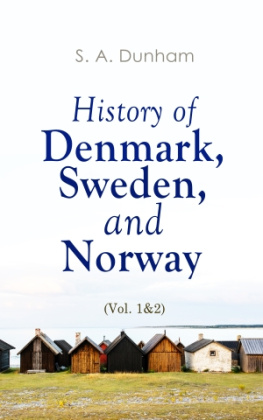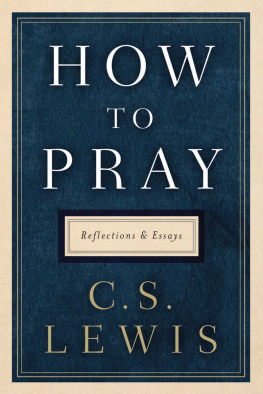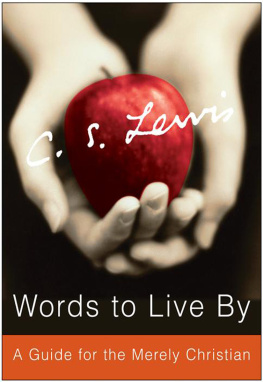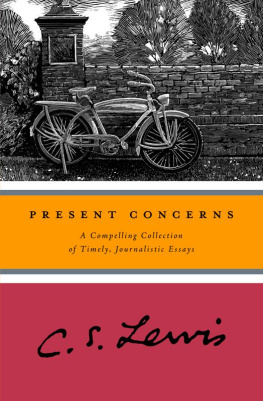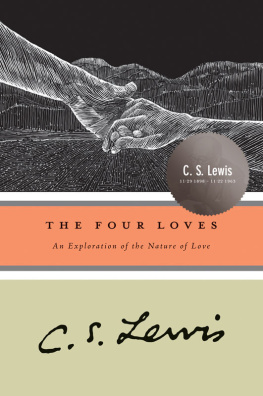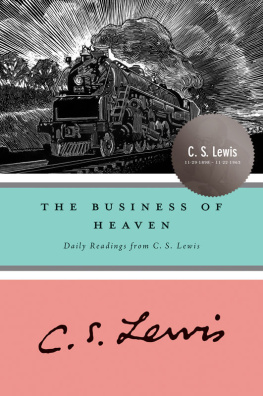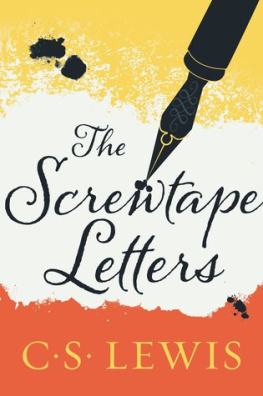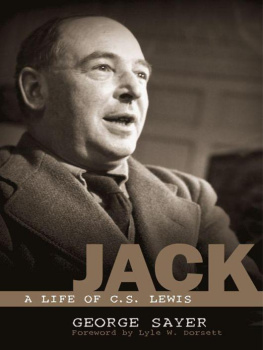THE NOTED CRITIC WILLIAM EMPSON ONCE DESCRIBED C. S. Lewis as the best-read man of his generation, one who read everything and remembered everything he read. This sounds like pardonable exaggeration, but it comes close to being true in the realms of literature, philosophy, and classics. At the age of ten, Lewis started reading Miltons Paradise Lost. By age eleven, he began his lifelong habit of seasoning his letters with quotations from the Bible and Shakespeare. In his mid-teens, Lewis was reading classic and contemporary works in Greek, Latin, French, German, and Italian.
And Lewis did indeed seem to remember most of what he read. One of his students recalled that someone could quote any line from the book-length Paradise Lost, and Lewis would continue the passage from memory. Another student said that he could take a book off Lewiss shelf, open a page at random and begin reading, and Lewis could summarize the rest of the page, often word for word. With that kind of memory, Lewis had little difficulty reaching for just the right quotation or reference to illustrate his point. Since it seems he was able to carry an entire library in his head, it should come as no surprise that his major scholarly books average about one thousand citations apiece. His three volumes of letters contain another twelve thousand quotations or references. Even The Chronicles of Narnia for children contain nearly one hundred echoes or allusions to myth, history, or literature.
But as Mortimer Adler once remarked, In the case of good books, the point is not to see how many of them you can get through, but rather how many can get through to you. Lewis would certainly agree, and he often commented how much his worldview and sensibility were shaped by the books he readeverything from Beatrix Potter in childhood to his re-reading of Homers Iliad, Dickenss Bleak House, and Tennysons In Memoriam in the last few weeks before his death in November 1963.
Lewis was a disciplined reader and an engaged reader. Fellow scholars recall how he could sit for hours in the Bodleian Library at Oxford, perusing and absorbing texts, oblivious to what was happening in the room around him. When reading books from his private library, he often added marginal notes and created his own index on the inside cover. If he found a book unprofitable, as he did Byrons Don Juan, he simply wrote on the inside back cover Never again.
Of course, reading was also one of the supreme pleasures of Lewiss life. In his memoir Surprised by Joy Lewis described his ideal daily routine to be reading and writing from nine until one and again from five to seven, with breaks for meals, walking, or tea-time. Apart from those six hours of study every day, he also enjoyed light reading over meals or in the evening hours (pp. 141143). All in all, Lewiss preferred schedule seemed to include seven or eight hours of reading per day! For Lewis, reading was both a high calling and an endless source of satisfaction. In fact, his sense of vocation and avocation were virtually indistinguishable whenever he picked up a bookand often when he wrote one.
Often Lewis described the community that is formed when one is among fellow passionate readers (see the chapter on ). This fellowship is not one of merely sharing a hobby but of people whose worlds have been enlarged and deepened by books. They are a distinctive group. This collection brings together fun, whimsical, and wise selections from Lewiss lifetime of writing that would be of interest to those who share this passion. And we mean all who love reading literature, whether childrens fantasy, poetry, science fiction, or Jane Austen. We did not include his opinions on classic or historical literature, which was his academic specialty, but only his advice and opinions on the shared enterprise of reading works of general interest. Nor do we include his many comments on Christian or devotional reading. This book is for members of the reading club, broadly defined.
One of the delights of Lewiss thoughts on reading is the breadth of his passions, never forgetting the childhood joy in discovering that books were portals to other worlds. As Lewis himself explained, Literary experience heals the wound, without undermining the privilege, of individuality.... In reading great literature I become a thousand men and yet remain myself. Like the night sky in the Greek poem, I see with a myriad eyes, but it is still I who see. Here, as in worship, in love, in moral action, and in knowing, I transcend myself; and am never more myself than when I do.
This volume is for the entertainment and the edification of those in this reading club. We hope you enjoy this new window into the wit and wisdom of C. S. Lewis.
DAVID C. DOWNING
Codirector of the Marion E. Wade Center at Wheaton College in Illinois
MICHAEL G. MAUDLIN
Senior Vice President and Executive Editor, HarperOne
An Experiment in Criticism
(from the Epilogue)
W E SEEK AN ENLARGEMENT OF OUR BEING. WE want to be more than ourselves.
Each of us by nature sees the whole world from one point of view with a perspective and a selectiveness peculiar to himself. And even when we build disinterested fantasies, they are saturated with, and limited by, our own psychology. To acquiesce in this particularity on the sensuous levelin other words, not to discount perspectivewould be lunacy. We should then believe that the railway line really grew narrower as it receded into the distance. But we want to escape the illusions of perspective on higher levels too.
We want to see with other eyes, to imagine with other imaginations, to feel with other hearts, as well as with our own. We are not content to be Leibnitzian monads. We demand windows. Literature as Logos is a series of windows, even of doors. One of the things we feel after reading a great work is I have got out. Or from another point of view, I have got in; pierced the shell of some other monad and discovered what it is like inside.
Good reading, therefore, though it is not essentially an affectional or moral or intellectual activity, has something in common with all three. In love we escape from our self into one other. In the moral sphere, every act of justice or charity involves putting ourselves in the other persons place and thus transcending our own competitive particularity. In coming to understand anything we are rejecting the facts as they are for us in favour of the facts as they are. The primary impulse of each is to maintain and aggrandise himself. The secondary impulse is to go out of the self, to correct its provincialism and heal its loneliness. In love, in virtue, in the pursuit of knowledge, and in the reception of the arts, we are doing this. Obviously this process can be described either as an enlargement or as a temporary annihilation of the self. But that is an old paradox; he that loseth his life shall save it.
We therefore delight to enter into other mens beliefs (those, say, of Lucretius or Lawrence) even though we think them untrue. And into their passions, though we think them depraved, like those, sometimes, of Marlowe or Carlyle. And also into their imaginations, though they lack all realism of content.
This must not be understood as if I were making the literature of power once more into a department within the literature of knowledgea department which existed to gratify our rational curiosity about other peoples psychology. It is not a question of knowing (in that sense) at all. It is connaitre not savoir; it is erleben; we become these other selves. Not only nor chiefly in order to see what they are like but in order to see what they see, to occupy, for a while, their seat in the great theatre, to use their spectacles and be made free of whatever insights, joys, terrors, wonders or merriment those spectacles reveal. Hence it is irrelevant whether the mood expressed in a poem was truly and historically the poets own or one that he also had imagined. What matters is his power to make us live it. I doubt whether Donne the man gave more than playful and dramatic harbourage to the mood expressed in The Apparition. I doubt still more whether the real Pope, save while he wrote it, or even then more than dramatically, felt what he expresses in the passage beginning Yes, I am proud.


